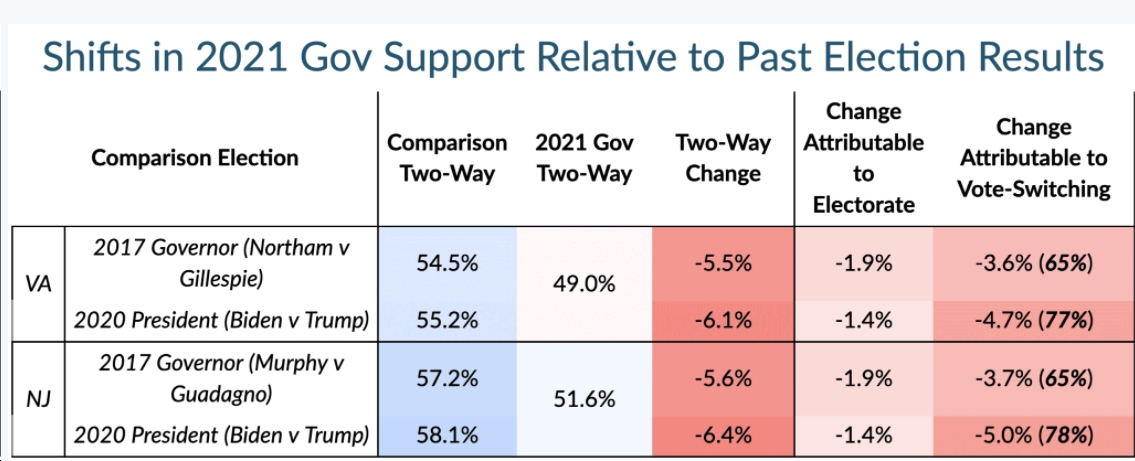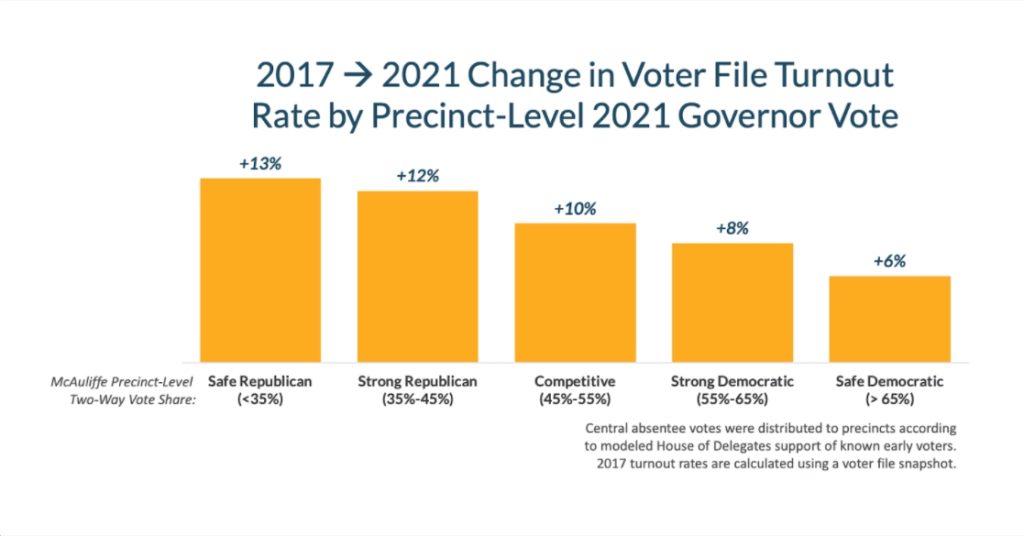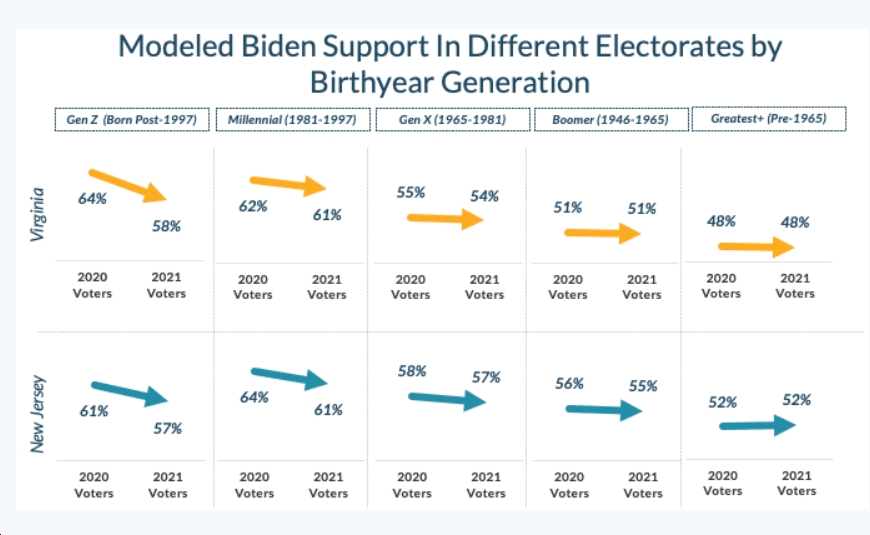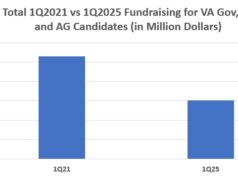“Data science software and consultancy company” Civis is out with a very interesting analysis of the 2021 Virginia and New Jersey elections. See below for key takeaways, namely that:
- “Persuasion and vote-switching played a significant role in the shifts observed from 2017 to 2021, and even more so in those from 2020 to 2021.”
- “Republican turnout was meaningfully higher in 2021 than in 2017, largely coinciding with increases in turnout in white and rural areas.“
- “Of the shifts in turnout that we do see, voter drop-off is a much bigger factor in changing electoral outcomes than a surge of new voters. Republicans successfully remobilized Trump 2020 voters while more 2020 Biden voters stayed home. Remobilizing these voters in 2022 represents a significant number of potential Democratic votes.”
This analysis largely confirms what FiveThirtyEight.com wrote back in December 2021, that “McAuliffe’s biggest underperformance relative to Biden came in heavily Biden-leaning areas“; that “Youngkin actually outperformed Trump in Virginia’s most pro-Trump precincts in an off-year election“; and that “it was in the pro-Biden precincts that this race was decided. In those precincts, the Democratic vote total dropped by hundreds of thousands, giving Youngkin the margin he needed to win.”
In the end, Democratic turnout in the 2021 Virginia governor’s race increased nearly 200,000 votes compared to 2017, when Ralph Northam won by an 8.9-point landslide over Republican Ed Gillespie. That’s not bad at all, and you’d think would have been enough for Terry McAuliffe to handily defeat Glenn Youngkin last November. But it’s all relative, after all, and in the end, Republican turnout REALLY went through the roof, jumping nearly 500,000 votes from 1,175,732 in 2017 to 1,663,158 (!) in 2021, and approaching the 1,962,430 votes for Trump in 2020. Which proved impossible to beat — although it’s worth noting that McAuliffe STILL only lost to Youngkin by just 64k votes (1.9 points)…very far from a landslide, and not even close to Northam’s 234k-vote (8.9-point) win in 2017, let alone Bob McDonnell’s 18-point win over Democrat Creigh Deeds in 2009.
Also worth noting from the Civis analysis, it was both “changes in the turnout environment” AND “vote switching” which caused a “shift [in] statewide election results about 6 points to the right in each state [VA and NJ] along with significant swings in their respective legislatures.”
By the way, the fact that the same basic trends were seen in both New Jersey and Virginia calls into question the impact of candidate quality – or lack thereof – and appears to point more to national factors, the usual phenomenon where voters go in the opposite direction of a new party in the White House in the year or two after that party is elected, etc. Of course, it’s an open question whether a different makeup of the Virginia Democratic ticket in 2021 – let’s say, Jay Jones (African-American, from the crucial Hampton Roads region) instead of Mark Herring (White, from Northern Virginia…along with the other two members of the ticket) – might have boosted turnout just enough to push one or more of the statewide candidates, and potentially a few House of Delegates candidates, from the “L” to the “W” column. Since we can’t rerun the election, we’ll never really know, but it’s an interesting question for 2025 and beyond as to how diverse (geographically, racially, ethnically, gender makeup, etc.) the Democratic ticket optimally should be…















